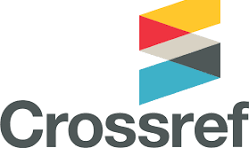Exploring the Impact of Emotional Intelligence on Teacher Job Performance: The Mediating Role of Team-Member Exchange in Educational Settings
DOI:
https://doi.org/10.63516/amss/02.02/007Keywords:
Emotional intelligence, team member exchange, job performance, teammates, cooperative environment, high-performance workAbstract
Background of the Study: This study examines the relationship between Emotional Intelligence (EI) and teachers’ job performance with the moderation of Team-Member Exchange (TMX). It emphasizes the relevance of both EI as well as reciprocal supportive team exchanges for improving teacher effectiveness. The results contribute to the understanding of performance mechanisms in educational organizations, placing individual and interpersonal factors at the core of conditions for learning success.
Methodology: The study employed a quantitative, causal-comparative design and was conducted among teachers (n=150) and students (n=150) of health education institutions in Karachi. Participants were selected with a convenience sampling approach. Data regarding teachers' emotional intelligence (EI) and team member exchange (TMX) levels were collected using structured questionnaires, wherein emotional intelligence was measured using self-report scales, whereas TMX was examined using interpersonal interactions among team members. Part of the measure of job performance was how well students graded their teachers. Smart PLS was employed for Structural Equation Modeling (SEM) to evaluate the relationships among EI, TMX, and job performance.
Results: Results showed that EI was positively correlated with job performance, and TMX played a moderate mediating role. These findings indicate that more effective interactions of the teachers with colleagues would ease the prediction of EI for job performance.
Conclusion: Educators can use this research to help improve the effectiveness and efficiency of teacher teams in educational settings as well as their performance on an organizational level. The study adhered to privacy considerations and ethical standards in conducting the research.
References
1. Abid, A., Hanif, A., & Khan, A. (2022). Does emotional intelligence impact team performance in construction projects? Exploring the mediating role of trust and moderating role of work status. Business Review, 17(2), 56-71.
2. Ahmad, R., Nawaz, M. R., Ishaq, M. I., Khan, M. M., & Ashraf, H. A. (2023). Social exchange theory: Systematic review and future directions. Frontiers in Psychology, 13, 1015921
3. Akhtar, W., & Garcia, R. (2023). Exploring the Role of Emotional Intelligence in Leadership Effectiveness: A Quantitative Approach. Management Science Research Archives, 1(01), 18-27.
4. Alo, O., Arslan, A., Tian, A. Y., & Pereira, V. (2024). Exploring the limits of mindfulness during the COVID-19 pandemic: qualitative evidence from African context. Journal of Managerial Psychology, 39(3), 372-402.
5. Alwali, J., & Alwali, W. (2022). The relationship between emotional intelligence, transformational leadership, and performance: A test of the mediating role of job satisfaction. Leadership & Organization Development Journal, 43(6), 928-952
6. Ashworth, S. R. (2013). The relationship between the emotional intelligence of secondary public school principals and school performance (Doctoral dissertation, Texas A&M University-Corpus Christi).
7. Chen, J., & Guo, W. (2020). Emotional intelligence can make a difference: The impact of principals’ emotional intelligence on teaching strategy mediated by instructional leadership. Educational Management Administration & Leadership, 48(1), 82-105.
8. Chen, X., & Wei, S. (2020). The impact of social media use for communication and social exchange relationship on employee performance. Journal of knowledge management, 24(6), 1289-1314
9. Cleven, A. J., Renaud, A., Larose-Pierre, M., McQuade, B., Griffin, B. L., Johnson, C., & Hughes, J. A. (2023). Associating growth mindset with emotional intelligence and why it’s needed for professional identity formation. American Journal of Pharmaceutical Education, 87(6), 100110
10. Gamero, N., González-Anta, B., Orengo, V., Zornoza, A., & Peñarroja, V. (2021). Is team emotional composition essential for virtual team members’ well-being? The role of a team emotional management intervention. International Journal of Environmental Research and Public Health, 18(9), 4544
11. Golzar, J., Noor, S., & Tajik, O. (2022). Convenience sampling. International Journal of Education & Language Studies, 1(2), 72-77
12. Gómez-Leal, R., Holzer, A. A., Bradley, C., Fernández-Berrocal, P., & Patti, J. (2022). The relationship between emotional intelligence and leadership in school leaders: A systematic review. Cambridge Journal of Education, 52(1), 1-21
13. Guchait, P., Peyton, T., Madera, J. M., Gip, H., & Molina-Collado, A. (2023). 21st century leadership research in hospitality management: a state-of-the-art systematic literature review. International Journal of Contemporary Hospitality Management, 35(12), 4259-4296.
14. Herb, M. A. (2022). A Quantitative Causal-Comparative Study about Academic Motivation in College Students Who Attended Public School or Homeschool (Doctoral dissertation, Northcentral University).
15. Irawan, D., Santoso, S., & Patricia, M. C. (2024). The Role of Emotional Intelligence in Leadership Effectiveness: A Cross-Industry Analysis. International Journal of Management, Accounting & Finance (KBIJMAF), 1(2), 29-39.
16. Junjie, M., & Yingxin, M. (2022). The Discussions of Positivism and Interpretivism. Online Submission, 4(1), 10-14.
17. Karupiah, P. (2022). Positivism. In Principles of social research methodology (pp. 73-82). Singapore: Springer Nature Singapore.
18. Kim, H., & Qu, H. (2020). Effects of employees’ social exchange and the mediating role of customer orientation in the restaurant industry. International Journal of Hospitality Management, 89, 102577
19. Koutsioumpa, E. M. (2023). Contribution of Emotional Intelligence to Efficient Leadership. A Narrative Review. Technium Soc. Sci. J., 48, 204.
20. Lan, J., Huo, Y., Cai, Z., Wong, C. S., Chen, Z., & Lam, W. (2020). Uncovering the impact of triadic relationships within a team on job performance: an application of balance theory in predicting feedback‐seeking behaviour. Journal of Occupational and Organizational Psychology, 93(3), 654-686
21. Li, M., Liu, F., & Yang, C. (2024). Teachers’ emotional intelligence and organizational commitment: A moderated mediation model of teachers’ psychological well-being and principal transformational leadership. Behavioral Sciences, 14(4), 345.
22. Lu, T. P., & Chen, J. (2024). The effects of teacher’s emotional intelligence on team-member exchange and job performance: the moderating role of teacher seniority. Current Psychology, 43(5), 4323-4336
23. Lu, T. P., & Chen, J. (2024). The effects of teacher’s emotional intelligence on team-member exchange and job performance: the moderating role of teacher seniority. Current Psychology, 43(5), 4323-4336
24. Lu, T. P., & Chen, J. (2024). The effects of teacher’s emotional intelligence on team-member exchange and job performance: the moderating role of teacher seniority. Current Psychology, 43(5), 4323-4336.
25. Majeed, N., & Jamshed, S. (2021). Nursing turnover intentions: The role of leader emotional intelligence and team culture. Journal of nursing management, 29(2), 229-239.
26. McNulty, J. P., & Politis, Y. (2023). Empathy, emotional intelligence and interprofessional skills in healthcare education. Journal of Medical Imaging and Radiation Sciences, 54(2), 238-246
27. Meira, J. V. D. S., & Hancer, M. (2021). Using the social exchange theory to explore the employee-organization relationship in the hospitality industry. International Journal of Contemporary Hospitality Management, 33(2), 670-692
28. Mello, P. A. (2021). Qualitative comparative analysis: An introduction to research design and application. Georgetown University Press.
29. Meradios, J. K. T., & Alcantara, C. C. (2023). The effect of emotional intelligence, job satisfaction, and professional identity on secondary teachers’ engagement. East Asian Journal of Multidisciplinary Research, 2(9), 3821-3834.
30. Mubashir, A., & Siddiqui, D. A. (2023). Work Engagement at the Corporate Crossroads: The Role of Followers' Conflict Behaviors, Mediated by LMX, TMX, and Transformational Leadership, with Prosocial Motivation as a Moderator, in Pakistan's Workforce Dynamics. Journal of Social & Organizational Matters, 2(2), 01-42.
31. Mumtaz, S., & Rowley, C. (2020). The relationship between leader–member exchange and employee outcomes: Review of past themes and future potential. Management Review Quarterly, 70(1), 165-189.
32. Mustofa, M. (2023). Epistemology of paradigms for positivism, Interpretivism, and action research in educational research: A literature review. Journal of Office Administration: Education and Practice, 3(3), 214-224.
33. Oh, H., & Jang, J. (2019). The role of team-member exchange: Restaurant servers’ emotional intelligence, job performance, and tip size. Journal of Human Resources in Hospitality & Tourism, 19(1), 43-61. https://doi.org/10.1080/15332845.2020.1672248
34. Oh, H., & Jang, J. (2020). The role of team-member exchange: Restaurant servers’ emotional intelligence, job performance, and tip size. Journal of Human Resources in Hospitality & Tourism, 19(1), 43-61.
35. Park, Y. S., Konge, L., & Artino Jr, A. R. (2020). The positivism paradigm of research. Academic medicine, 95(5), 690-694
36. Sa'adah, N., & Rijanti, T. (2022). The role of knowledge sharing, leader-member exchange (LMX) on organizational citizenship behavior and employee performance: An empirical study on public health center of Pati 1, Pati 2 and Trangkil in Central Java. International Journal of Social and Management Studies, 3(1), 112-131.
37. Saha, S., Das, R., Lim, W. M., Kumar, S., Malik, A., & Chillakuri, B. (2023). Emotional intelligence and leadership: insights for leading by feeling in the future of work. International Journal of Manpower, 44(4), 671-701
38. Segers, S. K. (2023). The perceived quality of interpersonal communication and the role it plays in emotional intelligence and workplace engagement. Keiser University.
39. Stratton, S. J. (2021). Population research: convenience sampling strategies. Prehospital and disaster Medicine, 36(4), 373-374
40. Thomas, A., & Gupta, V. (2021). Social capital theory, social exchange theory, social cognitive theory, financial literacy, and the role of knowledge sharing as a moderator in enhancing financial well-being: from bibliometric analysis to a conceptual framework model. Frontiers in Psychology, 12, 664638
41. Walliman, N. (2021). Research methods: The basics. Routledge.
42. Wang, Y., Zhang, Y., & Xu, F. Z. (2022). How does customer cooperation affect employees’ prosocial service behavior in upscale Chinese hotels? An affective social exchange perspective. International Journal of Contemporary Hospitality Management, 34(6), 2071-2091
43. Wojciechowska-Dzięcielak, P., & Ashkanasy, N. M. (2024). Work Motivation and Knowledge Sharing: The Roles of Team–Member Exchange (TMX), Justice Perceptions, Organizational Rules, and Climate for Trust. In Emotion in Organizations (Vol. 19, pp. 245-264). Emerald Publishing Limited.
44. Zakaria, Z., Majid, M. N., Othman, A. K., Ariffin, N. F., & Zahari, A. S. M. (2023). Predicting school teachers’ job performance through emotional intelligence model. European Proceedings of Social and Behavioural Sciences.
45. Zaman, N., Memon, K. N., Zaman, F., Khan, K. Z., & Shaikh, S. R. (2021). Role of emotional intelligence in job performance of healthcare providers working in public sector hospitals of Pakistan. Journal of Mind and Medical Sciences, 8(2), 245-251
46. Zhao, L., & Detlor, B. (2023). Towards a contingency model of knowledge sharing: interaction between social capital and social exchange theories. Knowledge Management Research & Practice, 21(1), 197-209.
Downloads
Published
Issue
Section
License
Copyright (c) 2025 Archives of Management and Social Sciences

This work is licensed under a Creative Commons Attribution 4.0 International License.




